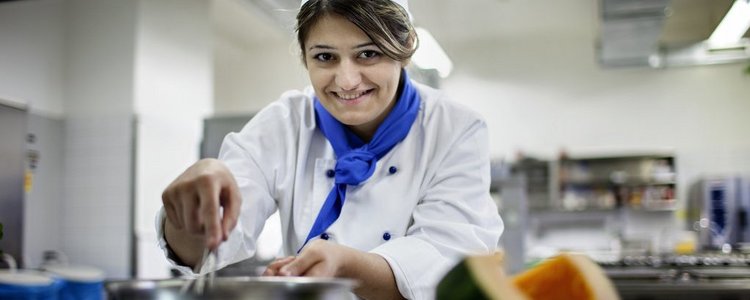Already as early as the 12th century young craftsmen travelled the country to learn new working techniques, get to know foreign places and regions and gain life experience. Young journeymen had to spend at least three years and a day on the road – the “Walz” – to be able to take their master craftsman's examination.
The modern Walz is called Erasmus+: for more than 25 years apprentices have been taking part in the EU education programme and gaining practical and personal experience abroad. The OeAD is the national agency responsible for implementing Erasmus+ in Austria.
Even today only those who have successfully passed their skilled craftsperson’s examination (Gesellenprüfung) and who are single, childless, have no debts and are no older than 30 are allowed to go on the traditional journey. Those who want to live strictly according to the medieval rules do so without mobile phones, without money and travel mainly on foot or hitchhike.
The requirements for Erasmus+ are less strict: in principle participation is open to every apprentice, even up to one year after completing their apprenticeship. The stays abroad last at least two weeks and a maximum of one year; travel and accommodation costs are subsidised. The sending institution also receives a subsidy for administrative costs.
Towards the end of the 18th century and the industrialisation that coincided with it traditional crafts slowly lost their importance and so did the journeyman years. Erasmus+, however, is becoming more and more popular among apprentices: in 2018 the 8,000th apprentice had already taken part in the programme.
To enable even more apprentices to take advantage of this opportunity in the future the OeAD, together with the Federal Ministry of Education, Science and Research (BMBWF), the Federal Ministry for Digital and Economic Affairs (BMDW) and the Austrian Chamber of Commerce (WKÖ), commissioned a study on “Auslandsmobilität in der Lehrlingsausbildung” (“International mobility in apprenticeship training”). The measures and focal points derived from it aim to make the Erasmus+ programme and the possibilities it offers better known and to create better framework conditions – so that in the future even more apprentices will take the chance to live, learn and work abroad. The aim is to double the number of internships abroad of apprentices to 2,000 per year by 2027.
Further information:
https://erasmusplus.at/de/berufsbildung
https://erasmusplus.at/de/berufsbildung/lernende
